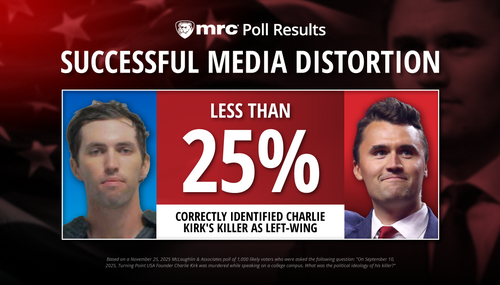Ever since James Comey was fired from his position as FBI Director by Donald Trump, the progressive left and their allies have been in an uproar. Several have voiced the opinion that Trump did this in order to end the FBI investigation into Russian interference in the 2016 election. One Yale history professor, however, put forth the claim that the President’s actions foreshadow a much more sinister pattern of events during Wednesday's edition of Morning Joe.
In showcasing his new book, On Tyranny: Twenty Lessons Learned From The Twentieth Century, author and professor of history at Yale, Timothy Snyder insisted that the manner in which Comey found out about his firing is comparable to Hitler’s infamous death squad, the SS:
GEIST: What do you see in terms of a parallel of the last twentieth century? You’ve watched the first few months of the Trump Administration. Is there a parallel in the world?
SNYDER: Of course there are all kinds of parallels and every day one sees a new one. So, for example, with the firing of Mr. Comey there are a couple of things. First of all, the idea of loyalty. Loyalty is a way that you take a rule of law state like ours off the rails and transform it into something else. When the president asked the FBI director for loyalty, he's actually trying to change the character of the American government. Hitler in 1934 began to demand precisely loyalty and it was from that moment forward that he was the leader and no longer just the chancellor of Germany. Or, for example, firing Mr. Comey by sending over a head of a private security detail. That's what happens in Germany as well. The private security detail eventually becomes the SA and the SS. They become more important than the police. It's a baby step forward to use the head of your private bodyguard to fire the FBI director, but it's a troubling indication of the way this man's mind works.
Willie Geist afterwards attempted to push back on the comments saying, “I just want to be clear, because when you use the term Nazis, all kind of alarm bells obviously go off. You're not comparing right now what you see in Donald Trump to Adolf Hitler or to the Nazis?” However, Professor Snyder declined to do so and instead pressed forward with his analogy.
SNYDER: It's important that history gives us a sense of possibility. As you said earlier, Americans tend to be trapped in our own history and we forget it very quickly. We're overwhelmed by daily events. What we need to remember is that we're not so much wiser and more capable than Germans in the 1930s. Things that happened to other people can also happen to us. The point is not that we're exactly the same, the point is that we should be modest, we should be open to the possibility that things can go very wrong and we should try to learn. If we see a warning sign like loyalty or like a private bodyguard taking over functions of the state, we should learn from that rather than saying it can't happen here. When you say it can't happen here, you're making it happen here.
If anything, I would say that this is more a troubling indicator of how this academic’s mind works as opposed to that of President Trump.
Here are the excerpts from the May 17 exchange:
WILLIE GEIST: Timothy, let me start with you and your book on 'OnTyranny' We were just talking about so much of what we've seen over the last three or four months has been described as unprecedented and that there's not a great sense of history in America or history in the world. You take a little bit longer view of things in this book.
TIMOTHY SNYDER: Yeah, what I try to do is imitate the Founding
Fathers. When the Founding Fathers wrote the constitution, they were worried about the future of the republic, they looked back at examples of democracies and republics failing. When we can today look back at the twentieth century, we also see that most Republicans and most democracies fail. What history can do is spread our imagination so that we can see how they fail and give us tools to try to help us. Because a lot of the things that are happening to us are just the early stages of processes that have happened elsewhere.
GEIST: What do you see in terms of a parallel of the last twentieth century? You’ve watched the first few months of the Trump Administration. Is there a parallel in the world?
SNYDER: Of course, there are all kinds of parallels and every day one sees a new one. So, for example, with the firing of Mr. Comey there are a couple of things. First of all, the idea of loyalty. Loyalty is a way that you take a rule of law state like ours off the rails and transform it into something else. When the president asked the FBI director for loyalty, he's actually trying to change the character of the American government. Hitler in 1934 began to demand precisely loyalty and it was from that moment forward that he was the leader and no longer just the chancellor of Germany. Or, for example, firing Mr. Comey by sending over a head of a private security detail. That's what happens in Germany as well. The private security detail eventually becomes the SA and the SS. They become more important than the police. It's a baby step forward to use the head of your private bodyguard to fire the FBI director, but it's a troubling indication of the way this man's mind works.
GEIST: Joe's got a question for you, but, I just want to be clear because when you use the term Nazis, all kind of alarm bells obviously go off. You're not comparing right now what you see in Donald Trump to Adolf Hitler or to the Nazis?
SNYDER: It's important that history gives us a sense of possibility. As you said earlier, Americans tend to be trapped in our own history and we forget it very quickly. We're overwhelmed by daily events. What we need to remember is that we're not so much wiser and more capable than Germans in the 1930s. Things that happened to other people can also happen to us. The point is not that we're exactly the same, the point is that we should be modest, we should be open to the possibility that things can go very wrong and we should try to learn. If we see a warning sign like loyalty or like a private bodyguard taking over functions of the state, we should learn from that rather than saying it can't happen here. When you say it can't happen here, you're making it happen here.
GEIST: Joe?
SCARBOROUGH: Well, yeah, professor, obviously we need to remain vigilant. Something that a lot of people that have come on this show have suggested. We are though, I would think, a long way from Germany the early 1930s. You look at the courts, which have pushed back on the president's executive orders. He's been extraordinarily frustrated by the courts. And not just judges on islands as the attorney general would say of a federal judge in Hawaii, but also the supreme court striking down to the North Carolina voter id law. I had a very conservative judge tell me we are all shoulder-to-shoulder against this president overstepping. Congress actually pushed back on the president's own health care plan, eventually passing something, but he seems to be tied up there as well. While we need to remain vigilant, and I agree with you we must remain humble about the possibility of it not ever being able to happen here that we're somehow beyond all of this, can't you look back at the last 120 days and say there are several parts of our system that have actually checked out quite well?
SNYDER: I would agree with that, but with a very important proviso. The system doesn't work like a machine. The system is us. So when Americans say the institutions are going to protect us, my response is ask not what the institutions are going to do for you, ask what you can do for the institutions. So, in so far as congress or the courts or, especially, I would emphasize the press has helped, it's because people in these institutions have been aware of the lessons of the past and have tried to get out front. When people went to protest the Muslim bans at the airports, it was because they understood the logic of politics like that and got out front. History is a way for us to--
SCARBOROUGH: And Professor?
SNYDER: Yes, sir.
SCARBOROUGH: Would you also agree that the one thing we have learned that is chilling, is that so much of our constitutional republic, of our system of what Madison and Hamilton put together depends on having a chief executive, a president who operates in good faith, that perhaps it is too dependent on that fact when you have a president that can appoint an attorney general, can hire and fire an FBI director with absolutely no oversight?
SNYDER: The main lesson that we have from 20th century history and the collapse of democracy in the overreach of executives is that it's important not to see moments like this as normal. And as you say, it's important not to imagine that executives will always behave normally. The chief lesson is you have to recognize moments when the actions of citizens matter more than other moments and that you only have a few months or a year at the beginning to react fast. As you say, some of us have done that. You can't count on checks and balances to work on their own. They have to be pushed and nudged along.




